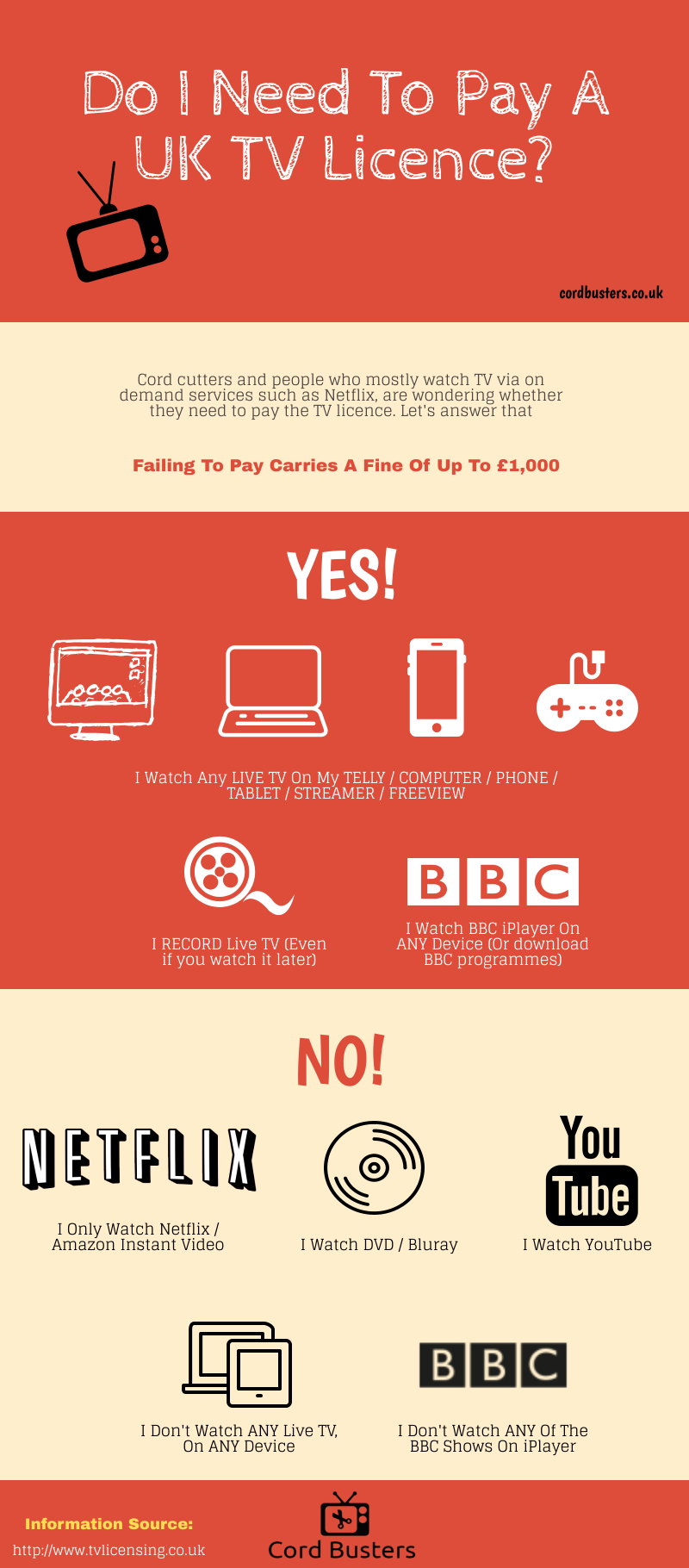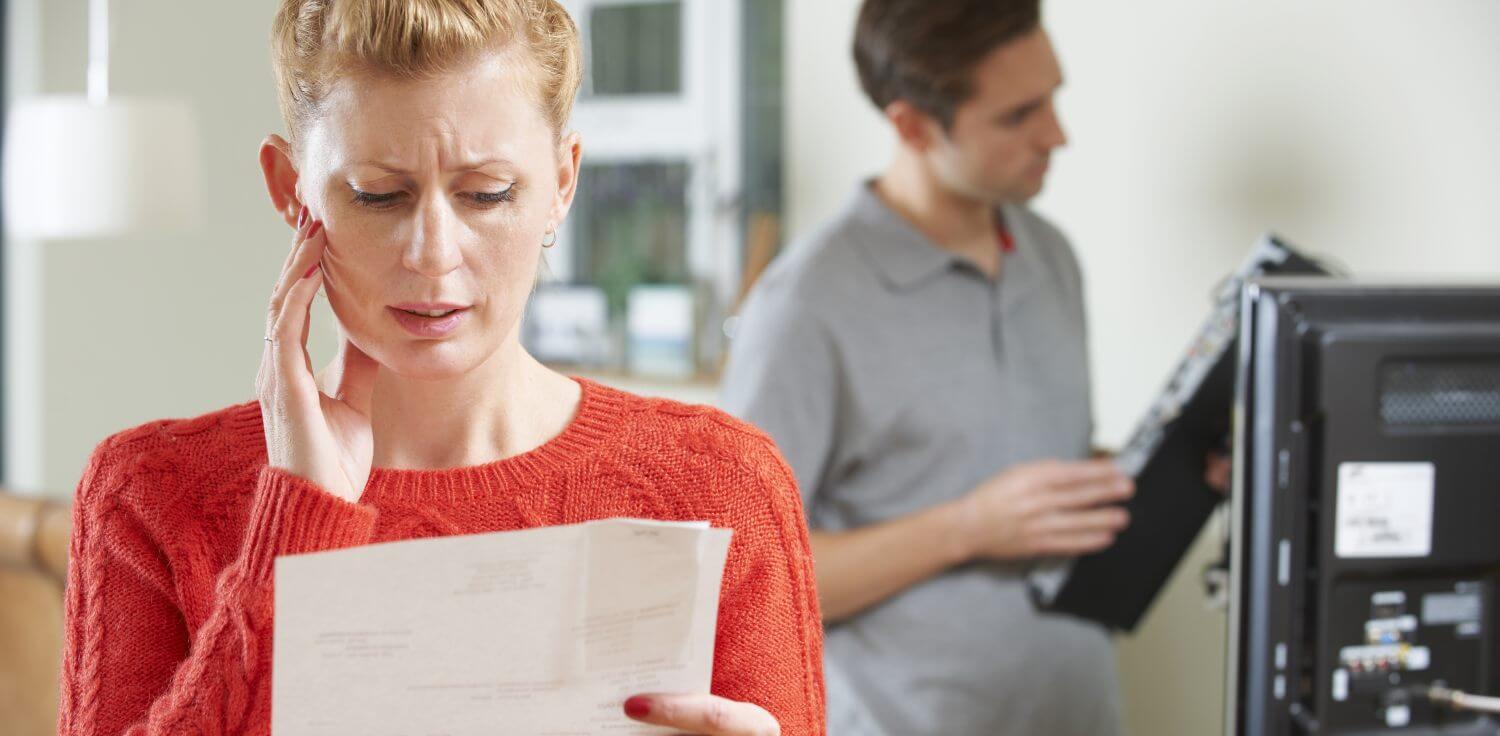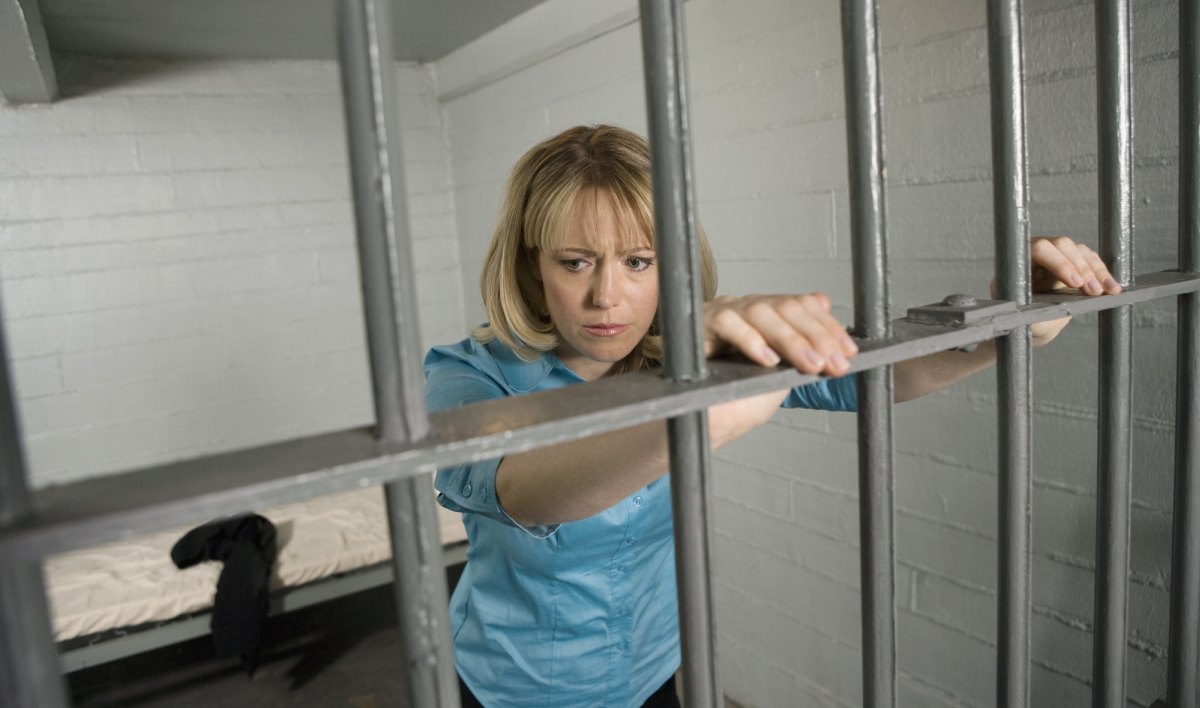Troubling new data from the Ministry of Justice shows that 74% of all those convicted of TV licence fee evasion in 2019 were women.
More so, a third of ALL women convictions were due to not paying the TV licence fee.
One of the reasons suggested by the MoJ is that women are simply more likely to answer the door, when the TV licence fee inspectors come knocking – because they’re more likely to be at home during the day.
The annual TV licence fee is used to fund the BBC, and currently stands at £157.50. Anyone who watches the BBC live, or via BBC iPlayer, has to pay it.
In addition, if you watch any type of live TV from any broadcaster, you also need to pay the fee (See our full guide on whether you need to pay the TV Licence fee).

Failure to pay the TV licence fee is a criminal offence, and evaders can end up paying a fine of up to £1,000 – or go to jail.
Earlier this month we reported that although the government is still in discussions on whether to decriminalise the TV licence fee, inspectors were already back to chasing possible evaders – even during the November lockdown.
According to data published by the MoJ this week, there were 114,000 convictions of TV licence fee evaders in 2019 (up 3% from 2015). Of those, 74% were women.
In total, TV licence evasion made up 30% of all female convictions, compared to just 4% of male convictions.

Fines accounted for 99% of those sentenced for TV licence evasion in 2019 across both sexes – but those who do not pay the fine, can end up in prison.
The victims’ commissioner, Dame Vera Baird, spoke with The Telegraph about these numbers, saying this could be indirect gender discrimination. “This report points to women who happen to be the person answering the door becoming the defendant.
“Whichever family member is prosecuted, it is an unnecessary conviction serving only to criminalise poverty and disproportionately punish poorer families, with all the problems of a criminal record impeding the ability to work.”
The data brought on a lot of angry responses from campaigning bodies and on social media, as well.
Latest @MoJGovUK data shows nearly a third of women's convictions are for TV licence fee evasion.
Handing out #shortsighted sentences to women for non-payment of these fines is extremely harmful👇 https://t.co/QrJl7snVN5 pic.twitter.com/a05KivLaYc
— Revolving Doors (@RevDoors) November 27, 2020
Last year, Boris Johnson ordered a review of the BBC licence fee, with its cancellation or decriminalisation on the table.
If the licence fee gets decriminalised, its enforcement will be turned over to bailiffs, which can prevent a criminal conviction – but failure to pay can also hurt a person’s credit rating.
The new BBC director-general, Tim Davie, also addressed the issue recently, saying that decriminalisation does not “pass the logic test”, and that under the new system, fines might get even higher.

You can’t be jailed for not paying the licence fee. Your picture is ridiculous.
Technically true but you can be jailed if fined and you don’t pay the fine. Very few actually go to prison though (zero over the period mentioned in article). I agree, the picture is ridiculous.
Is EVERY householder classed as an “evader” if they do not have a tv license at that address? I have a flat that I am the sole occupant of, but I cannot use all the time for various reasons. There is a TV there, but is not installed in a way that can receive TV stations (not connected to an aerial/satellite dish or even the mains) and I NEVER watch an live TV there on any device. I keep getting stupid letters from Capita, claiming to be the BBC, which go in waves with increasing amounts of red ink… They make increasingly wild threats against me. And they all cost money to send out – money which, with a substantial uplift for Capita then gets charged to the BBC and gets paid out of the license fees from those that do watch broadcast TV.
These “scary letters” also tell me that if I do not need a license I must tell them – but the letters also tell me that Capita (err, sorry, the BBC) won’t believe me and wil send someone round to check if I am lying. Well, I’m not and I resent the BBC telling me that I have to tell them in any case. The law says that I only need to pay for a license if I watch broadcast programmes. I DO NOT have to notify anyone whether I do or not – that is my private business.
If, after several years of sending their pathetic letters they have ANY evidence that I need a license, then they should get a warrant and search the premises. Of course, they do not have any evidence, because I do not need a license. So they cannot get the warrant. But Capita will continue wasting license payers money for as long as the BBC will keep giving it to them….
The BBC already carries lots of advertising (even the news these days carries non-news stories to advertise their programmes later that day!) but it is all for the BBCs own commercial products. And the BBC no longer has much in the way of “Public Service” broadcasting, so it is not the broadcaster that it is chartered to be. It’s time to set it free to make its own way without having this extra household tax that the BBC wastes so spectacularly!
As a former Licensing Inspector (Goon) which I did for 3 weeks (but quit because of TV Licencing/Capita’s unfair practices to reach their ‘hit’ rate targets) I feel I can offer some genuine input
TV Licensing deliberately goes after easy targets, mostly young single mums or the elderly, the types of people who are most likely to answer the door and willingly confess they don’t have a TV Licence believing that their honesty will be taken into account and they won’t be prosecuted (they always are as that 38 a week quota is the driving force by Capita)
They will though as License Inspectors need to have at least 38 successful prosecutions per week in order to earn a much higher pay rate and other bonuses. The incentive is to ‘catch’ people to get at least the 38 per week needed
Persistent evaders, those who know the loopholes, potentially aggressive/intimidating types and so on are almost always male and of mid to mature age (but seldom pensioners) are usually given a wide berth as they’re “Too much hassle”. Notes are kept on record for these addresses and the Goon has access to the history of each and every address so makes the decision as to whether an address is a soft target (for the 38) or not worth the aggravation of a deliberate evader